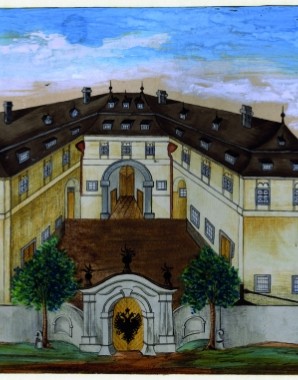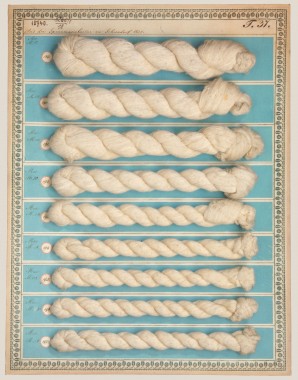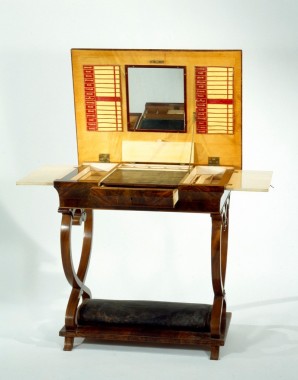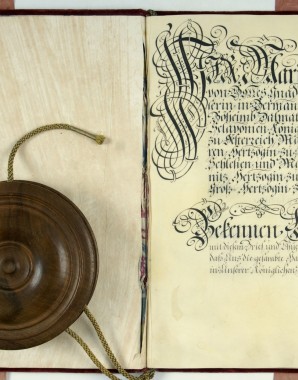Pulling Threads
Of Workshops, Craftsmen and Textiles
Workshops (or ‘manufactories’, as they were known) and cottage industry were promoted by Maria Theresa and opposed by craftsmen. In the end both faced competition from technical inventions.
Workshops, outwork and cottage industry were what characterized so-called proto-industrialization, that to say ‘industrialization before industrialization’. The state’s trade policy was to promote and grant privileges to workshops, while reforming guilds and crafts. These saw the workshops as a threat to their existence and agitated against the pressure on wages which the owners of workshops were able to exert not least because they employed women on low wages. At the same time workshops and outwork represented a chance to earn money for the population, especially in rural areas. In the eighteenth century the textile industry was an important branch of the economy, and its goods were often produced by ‘putting out’. The mechanization of spinning and weaving and the invention of the sewing machine revolutionized the production of textiles.


















